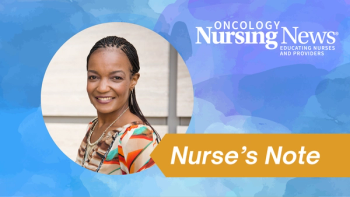
- October 2017
- Volume 12
- Issue 8
Oral Oncolytic Agents: New Caregiver Challenges
The use of oral oncolytic agents is on the rise, and these medications now account for a large percentage of all prescribed cancer treatments. Although oral agents offer a convenient alternative to traditional intravenous (IV) chemotherapy, they present new and unique challenges to caregivers.
The use of oral oncolytic agents is on the rise, and these medications now account for a large percentage of all prescribed cancer treatments. Although oral agents offer a convenient alternative to traditional intravenous (IV) chemotherapy, they present new and unique challenges to caregivers (Marshall V, Vachon E, Given B, unpublished data, 2017).1
Family caregivers perceive oral agents differently from how they view IV chemotherapy (Marshall V, Vachon E, Given B, unpublished data, 2017). They appreciate the convenience oral agents offer, such as cutting back on travel to oncology clinics for treatment and enabling patients to administer the drugs themselves.2 However, caregivers face a significant and greater responsibility to make sure that patients are self-administering oral agents as prescribed.2 When caregivers need to assist with administration, they are confronted with safe handling of toxic medication.2 Managing symptoms and adverse effects without the close supervision of oncology professionals can weigh heavily on caregivers who feel unprepared to offer this assistance.2 Oncology professionals must ensure that caregivers receive appropriate and trusted oncology resources regarding how to identify and manage symptoms and adverse effects at home and when to contact oncology personnel.
The challenges of managing complex oral agent regimens include dosage changes, interruptions, and stoppages (Marshall V, Vachon E, Given B, unpublished data, 2017).2 Caregivers may not be aware of the potential need for changes to the original regimen during the treatment trajectory.2 Every effort should be made to discuss the complexity of oral agent treatment regimens with caregivers and reasons the dose may be decreased, increased, interrupted, or stopped.
Caregivers of those receiving oral agents also must deal with the cost.2 Financial assistance may be available, but its duration may be unknown and cause the stress of financial burden.2 Some oral agents may not be covered under insurance plans, and the patient’s state of residency may not have parity laws, which require that the oral agent be covered under the same medical benefit as IV chemotherapy, instead of the pharmaceutical benefits, which makes the medication more affordable.3 Caregivers should be referred to assistance programs, as well as social workers specializing in oncology care, to reduce the stress of financial burden.
In addition, caregivers may encounter pharmacy-related issues, because several oral agents are dispensed by specialty pharmacies. Before shipping the medication, a specialty pharmacy must verify the patient’s insurance coverage and eligibility of drug formulary criteria.4 That process could create a lag between the time the oral agent was prescribed and when it is delivered, delaying initiation or disrupting continuity of treatment. Shipping expensive oral agents also requires a signature upon delivery, which necessitates coordination of availability among caregivers.2
Oncology nurses are positioned to address the numerous challenges and concerns to reduce the negative impact on caregivers.2 Evaluating and addressing caregivers’ educational needs surrounding oral agents, as well as offering referrals to trusted oncology resources and professional services for funding of oral agents, can help ease the burdens and enhance effective caregiving.2
Victoria K. Marshall, BSN, RN is a PhD nursing student and graduate research assistant at the Michigan State University College of Nursing. She is also an American Nurses Foundation Scholar.
References
1. Given BA, Spoelstra SL, Grant M. The challenges of oral agents as antineoplastic treatments. Semin Onc Nurs. 2011;27(2):93-103. doi: 10.1016/j.soncn.2011.02.003.
2. Marshall V, Vachon E, Given B, Lehto, R. (2017). The Impact of Oral Cancer Medication from a Family Caregiver's Perspective. In Press. Paper presented at: International Conference on Oncology Nursing; July 10, 2017; Anaheim, CA.
3. Kircher SM, Meeker CR, Nimeiri H, et al. The parity paradigm: Can legislation help reduce the cost burden of oral anticancer medications? Value Health. 2016;19(1):88-98. doi: 10.1016/j.jval.2015.10.005.
4. Wang L, Tao T, Hamilton N. Turning tides: trends in oncology market access. InVentivHealth website.
Articles in this issue
about 8 years ago
What to Do When Social Media Lines Are Blurredabout 8 years ago
Improving Adherence to Oral Therapiesabout 8 years ago
Be a Mentor for New Oncology Nursesabout 8 years ago
The Importance of Interdisciplinary Relationships and Oral Adherenceabout 8 years ago
Angiogenesis Inhibitor Tested in Mesothelioma Trialabout 8 years ago
How Often Do Vesicant Extravasations Occur?about 8 years ago
Staying on Course: Nurses Have the Power Over Oral AdherenceNewsletter
Knowledge is power. Don’t miss the most recent breakthroughs in cancer care.




